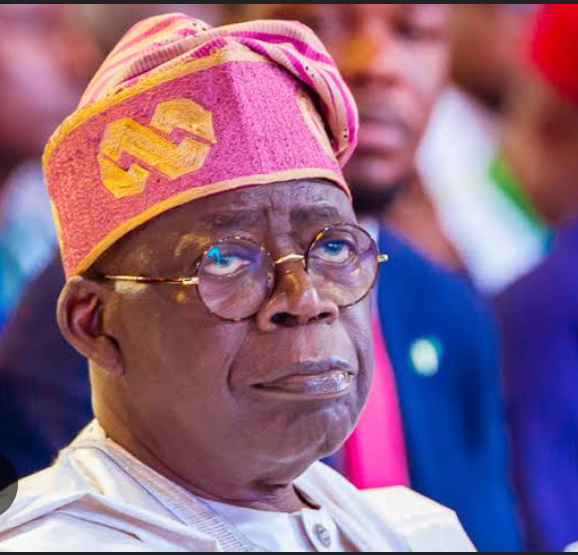
“No More Phantom Islands”: Tinubu Cracks Down on Illegal Coastal Developments in Bold Warning to Land Grabbers

In a thunderous declaration that could reshape Nigeria’s urban development landscape, President Bola Tinubu has drawn a clear line in the sand—literally. During a high-profile event in Lagos on Thursday, Tinubu issued a firm warning that the era of constructing illegal islands and erecting unauthorized structures on setback zones is over. “Take it that we will revoke all those approvals given on setbacks,” the president said, his voice cutting through the crowd like a gavel in a courtroom. “No more approvals for those unapproved islands being created illegally.”
The message was unequivocal. Nigeria, Tinubu announced, will no longer turn a blind eye to developments that threaten the environment, public safety, and urban integrity. The president’s comments, made in the presence of Lagos State Deputy Governor Dr. Obafemi Hamzat and other top officials, appeared aimed at curbing a troubling trend: the unchecked spread of artificial islands and luxury estates along the country’s coastlines—particularly in Lagos, where real estate speculation has reached fever pitch.
Tinubu’s tough talk reflects mounting national concern over the environmental and infrastructural consequences of these developments. The creation of man-made islands and extensive land reclamation projects has raised red flags among urban planners, environmentalists, and residents alike. From Victoria Island to Lekki, swathes of coastline have been transformed into high-end enclaves—often without sufficient regulatory oversight or environmental impact assessments. The consequences are becoming painfully clear: increased flooding, shoreline erosion, displaced communities, and a rapidly degrading natural habitat.
By ordering the immediate revocation of approvals for developments on designated setback zones—areas typically reserved as buffers to manage flooding, protect natural ecosystems, or ensure public access—Tinubu is sending a powerful signal to state agencies and private developers alike. The president’s directive cuts through years of regulatory ambiguity and, some would argue, political complacency. It places environmental stewardship and urban accountability squarely at the heart of the national agenda.
But the stakes go far beyond aesthetics or legal compliance. Lagos, Nigeria’s economic powerhouse and one of Africa’s fastest-growing megacities, sits at the frontline of the global climate crisis. Rising sea levels and intensified rainfall have already put the sprawling metropolis under severe stress. Just last year, torrential rains submerged entire neighborhoods, forcing residents to wade through waist-deep water and causing widespread property damage. Experts warn that without strict controls, the continued encroachment on floodplains and natural drainage systems could lead to a catastrophic tipping point.
In this context, Tinubu’s crackdown reads less like a policy adjustment and more like a preemptive strike against ecological disaster. “If we don’t take action now, we may wake up to a Lagos that is not only underwater but ungovernable,” a senior urban development official, speaking anonymously, told this reporter. “The president’s directive is a long-overdue lifeline for the city.”
That said, enforcing the new policy will not be straightforward. Developers behind these projects often wield significant political and financial influence. Some approvals were granted through opaque channels, while others may have involved powerful interests with deep connections across government tiers. The process of identifying and revoking these permits—assuming records are even intact—could be mired in legal battles, bureaucratic inertia, and outright resistance.
Nonetheless, Tinubu appears undeterred. His remarks suggest a willingness to confront not only the environmental risks but also the political complications that come with challenging entrenched real estate interests. “We are not going to tolerate illegality,” he asserted, gesturing firmly as cameras flashed. “There will be consequences.”
The president’s stance has already begun to spark conversation online and on the ground. Social media has lit up with a mix of support and skepticism. While some applaud Tinubu for taking a courageous stand, others question whether the directive will be enforced or eventually diluted under pressure.
“This is the same government that approved some of these projects,” tweeted one user. “Let’s hope they follow through this time.”
Others are calling for stronger measures. Should illegal land reclamation be criminalized? Should developers face penalties beyond permit revocation—perhaps including asset forfeiture or even imprisonment? The questions are beginning to swirl, and the public seems eager for answers. After all, ordinary Nigerians have long borne the brunt of poor urban planning, from flooded streets to skyrocketing rents in overcrowded cities.
Meanwhile, environmental experts are urging swift implementation. Dr. Funmi Adebayo, a coastal engineer and climate resilience consultant, emphasized the urgency of acting before the next rainy season. “We need a moratorium on all ongoing reclamation projects pending review,” she said. “And we need an independent task force—not one tied to the same agencies that issued these approvals in the first place.”
For Tinubu, the crackdown may also serve as a defining moment in his presidency. With his administration still shaping its legacy, a visible push for environmental justice and responsible urban development could resonate across generations. Nigeria’s cities are expanding rapidly; how that growth is managed—or mismanaged—will determine the country’s economic and social trajectory for decades to come.
Back in Lagos, residents along the coast are watching closely. Some fear that even if approvals are revoked, developers may continue work behind closed gates and under cover of darkness. Others remain hopeful that Tinubu’s words will translate into lasting policy change. What is certain is that the president’s declaration has stirred the waters—both literally and politically.
If Nigeria is to avoid an environmental reckoning, it must not only halt the spread of unauthorized developments but also rethink its entire approach to urban growth. Tinubu has drawn a bold line. Whether others will step across it—or stand firm behind it—remains to be seen.


